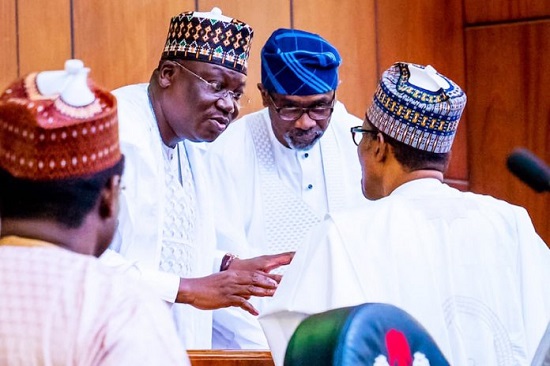This post has already been read 1214 times!
The recent approval of two fresh foreign loans of $1.5 billion and €995 million respectively, by the Senate, has raised a lot of concerns among many stakeholders in the country.
Many have considered it a very bad move in the management of the economy, particularly at this time of excruciating debt service obligations. The loans in question, as presented by Clifford Ordia, the Chairman of the Senate Committee on Local and Foreign Debts before the whole Senate are part of the external loans President Muhammadu Buhari had requested in May 2020 for the financing of various “priority projects” in the country.
The $1.5 billion is to be sourced from the World Bank for the financing of critical infrastructure across the 36 states of the federation under the States Fiscal Transparency, Accountability and Sustainability (SFTAS) programme and COVID-19 action recovery plan while the €995 million is to be sourced from the Export-Import Bank of Brazil to finance the Federal Government’s Green Imperative project to enhance the mechanisation of agriculture and agro process to improve food security.
Nigerians have been inundated by frequents requests by Mr. President for loans at the slightest financial pressure. These loans have become too many and most well-meaning Nigerians have called for a stop to this disturbing trend to incur loans inappropriately. Nigeria already has a huge debt burden and does not have this situation worsened by the administration of Buhari. According to the Debt Management Office, Nigeria’s total public debt as of December 2020 stood at N32.915 trillion, a whopping 20.13 per cent increase over the N27.4 trillion figures a year earlier. In recent times, the increase in the country’s total debt stock was mainly due to a 40.83 per cent increase in external debt to N12.71 trillion in December 2020 from N9.02 trillion in December 2019. This is very alarming. Where are the projects to which these borrowings have been committed? Many Nigerians do not see them.
Aside from this, the Federal Government has also incurred another N10 trillion in overdrafts with the Central Bank of Nigeria. This overdraft, which can also be provided by printing of money, has been repackaged to be repaid over a 30-year period. One wonders what the managers of the economy have up their sleeves when they take on these liabilities which have serious implications not only for the present but also for the future generations of Nigerians. These allegations of printing money that has been trending across the country in recent times can be seen as seemingly substantiated with this huge N10 trillion owed by the CBN. The CBN might have invariably resorted to printing money to satisfy the overdraft requests from the government. Where do we go from here?
The poor argument put forward by the government and other proponents of more borrowing is that the country’s Debt-GDP ratio is still healthy and below 40 per cent. They, however, lose sight of the fact that GDP does not repay the debt; revenue does. GDP only tells you what the size of your economy is and not that you have put in place the mechanism to serve the loan when they fall due.
Currently, the debt service to revenue ratio is in the region of 70 per cent, implying that for every N100 earned as revenue by the country, N70 will be used to service existing debts while a paltry N30 will be left to keep the economy running. No wonder government has been having serious fiscal challenges in recent times despite the improving prospects in the global oil market. This is simply because the government is paying a large portion of the earned revenue as debt service added to the fact that the government has failed to drastically cut the cost of governance despite the hue and cry being raised by many stakeholders including this newspaper. One wonders why it is so difficult for the Buhari administration to cut the cost of governance, particularly the perks and allowances of political office holders and the huge security votes which have been used to do other things apart from security.
Why is the Presidency still keeping so many jets in the Presidential fleet? Why is the President still undertaking medical tourism when the country is in such an economic strait with great fiscal challenges? All that is going on now run completely contrary to the campaign promises the President made to the Nigerian people when he was seeking this office that he presently occupies. Was it a plan to deceive the populace in the quest for political power? If not, what went wrong?
It is obvious that with the high debt profile and a huge percentage of revenue being used to service it, another loan now is simply reckless. The argument of the government that the country’s GDP is good enough to accommodate more loans is unrealistic because debt servicing is slowly killing Nigerians. Besides the fact that government has a penchant for not satisfactorily accounting for loans, these particular loans are grave misnomers because they are largely aimed at boosting agriculture, at a time that close to half of Nigerian farmers have been driven away from their farms by bandits. The approval of the loans is a misappropriation of priorities. It should be stopped. Government should concentrate on securing lives and properties and cut its outlandish expenditure.



